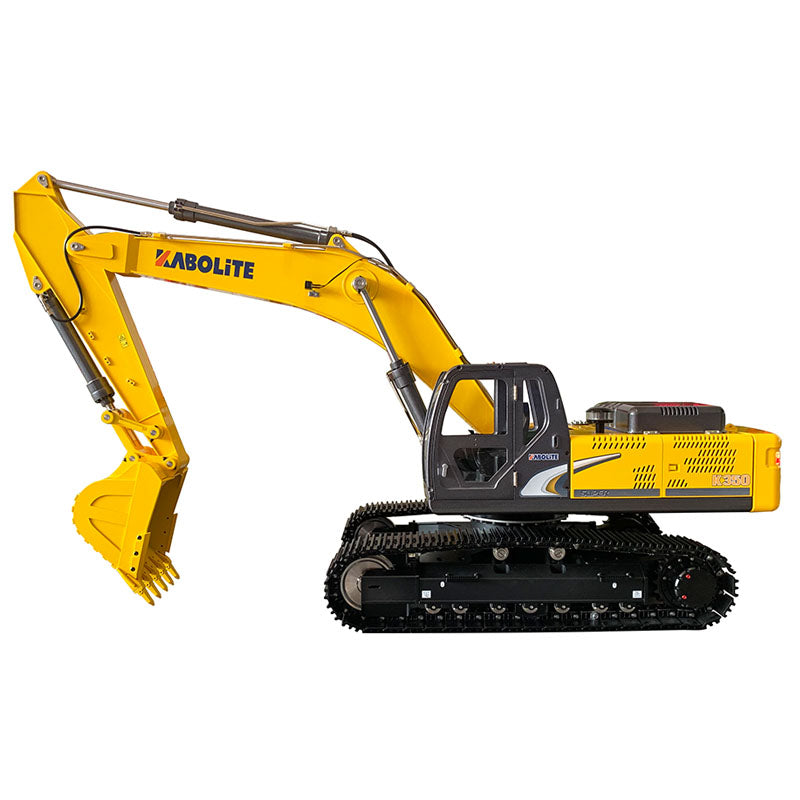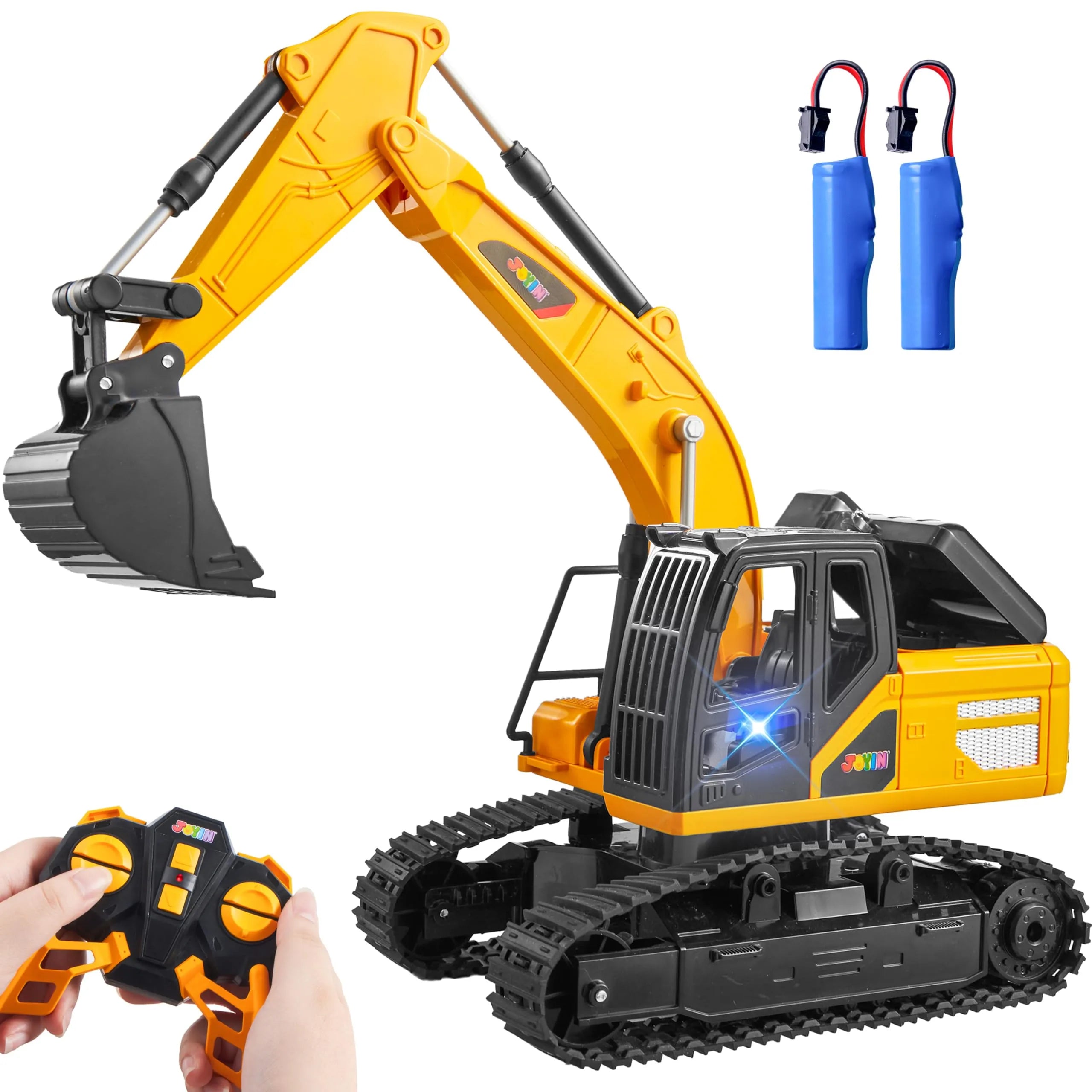Discover the Significance of Excavator in Modern Construction Projects
Excavators are crucial tools in contemporary building and construction projects. Their flexibility enables them to execute a variety of tasks, from excavating and grading to demolition and site prep work. Advanced attributes, such as hydraulic accessories and GPS, enhance their abilities and performance on work sites. As the industry develops, the value of excavators expands a lot more. Comprehending their duty can reveal insights into the future of building and construction techniques. What exists ahead for these machines?
The Flexibility of Excavators in Different Projects
Although excavators are frequently related to large building tasks, their flexibility permits them to be utilized in a vast variety of applications, from property landscaping to utility maintenance. In city settings, excavators can browse limited areas to dig foundations for homes or install drainage systems. Their capability to do delicate tasks makes them perfect for landscape design tasks, where they can dig deep into for ponds or plant trees. In addition, excavators play a vital role in energy maintenance, successfully excavating trenches for pipes or cable televisions without disrupting surrounding areas. In agricultural applications, they aid in land cleaning and soil prep work. Their adaptability enables them to be equipped with different add-ons, improving their capability across different jobs. This diverse nature of excavators not just streamlines numerous building and construction processes but likewise shows their important role in contemporary framework advancement and upkeep.
Trick Attributes and Types of Excavators
The discussion on essential functions and sorts of excavators highlights the essential attributes that make these equipments vital in building. Various excavator types, each developed for details tasks, show their convenience and performance across different applications. rc excavator. Understanding these categories and features is crucial for maximizing their use in contemporary construction jobs
Excavator Types Review
Excavators play a critical duty in modern-day construction, providing adaptability and efficiency across numerous jobs. These hefty equipment units can be found in numerous types, each tailored for specific applications. The most common types include crawler excavators, known for their security on uneven terrain, and rolled excavators, which give better mobility on paved surface areas. Miniature excavators are preferred for tight spaces and small jobs, while long-reach excavators are made for deep excavating. In addition, there are specialized excavators, such as hydraulic excavators, which improve power and accuracy. Each type features unique abilities, making them important for tasks varying from digging and grading to demolition and product handling. Understanding these variants permits building experts to select the best excavator for their project needs.
Secret Features Explained
Understanding the vital attributes of excavators improves their efficient application in construction tasks. Excavators are defined by their powerful hydraulic systems, which offer the necessary pressure for excavating, training, and moving products. Their expressed arms enable for a variety of movement, helping with accurate operations in restricted rooms. In addition, the range of attachments, such as containers, grapples, and augers, expands their convenience to fulfill different project needs. The size and weight of excavators also contribute to their security and maneuverability on different surfaces. Improvements in modern technology have led to the combination of GPS and automation, improving accuracy and efficiency in excavation tasks. These attributes collectively place excavators as indispensable devices in modern building.
Applications in Building
Transforming building websites, excavators play a pivotal function across different applications, varying from household building projects to massive facilities growths. These flexible equipments are equipped for tasks such as digging foundations, trenching for utilities, and site grading. Different sorts of excavators, including spider, rolled, and mini excavators, give particular benefits customized to the task requirements. Spider excavators master rough surfaces, while rolled excavators offer wheelchair on smooth surface areas. Miniature excavators are optimal for constrained areas, making them preferred in urban settings. The efficiency and power of excavators substantially quicken building procedures, ensuring prompt task conclusion. Their flexibility even more boosts their value, permitting building and construction teams to deal with a varied array of challenges efficiently.
Enhancing Performance and Productivity on Job Sites
Optimizing performance and efficiency on work sites is a critical objective in contemporary construction. Excavators play a critical duty in attaining this objective by enhancing numerous jobs. Their ability to perform multiple functions-- such as excavating, training, and grading-- minimizes the need for added devices, consequently conserving time and resources.Moreover, excavators improve workflow by permitting faster completion of tasks. With advanced functions like hydraulic accessories and general practitioners technology, they can perform precise operations that lessen mistakes and remodel. This precision not only enhances the high quality of work yet also enhances product use, contributing to cost savings.The versatility of excavators enables them to adapt to various site conditions, guaranteeing that projects advance smoothly no matter challenges. By integrating excavators into construction procedures, groups can considerably increase their total performance, bring about prompt project conclusion and raised success.
Safety Advantages of Making Use Of Excavators
Excavators greatly boost safety on building and construction sites with improved operator visibility and reduced manual work risks. By providing operators with a clear sight of their surroundings, excavators help to avoid accidents and injuries. In addition, the equipment reduces the requirement for employees see it here to engage in unsafe hands-on tasks, better promoting a safer workplace.
Boosted Driver Visibility
Building and construction sites can be disorderly and filled up with prospective dangers, improved driver visibility plays a crucial function in making sure safety and security when making use of excavators. Modern excavators are created with large, unblocked home windows and strategically positioned mirrors, permitting drivers to keep a clear view of their surroundings (rc excavator). This improved presence is critical for finding pedestrians, various other machinery, and different barriers, substantially lowering the risk of accidents. Additionally, lots of excavators include advanced modern technology, such as sensors and video cameras, to provide drivers with additional perspectives, additionally improving awareness. The capability to see more plainly not only aids in reliable operation but likewise promotes a safer workplace, making it less complicated for operators to browse complex building sites without endangering safety criteria
Lowered Manual Labor Dangers
When manual work is lowered via making use of excavators, numerous safety and security benefits arise, significantly enhancing the health of construction employees. Excavators minimize the physical pressure linked with heavy lifting and repetitive tasks, efficiently lowering the risk of bone and joint injuries. By automating procedures such as excavating, grading, and relocating products, they enable employees to keep a safer distance from prospective hazards. Additionally, excavators are geared up with innovative safety attributes, such as rollover security systems and improved driver functional designs, which additionally protect employees on website. The result is a substantial reduction in work environment mishaps and injuries, leading to enhanced performance and spirits among construction teams. Eventually, the fostering of excavators adds to a more secure and more reliable building atmosphere.
Excavators in Earthmoving and Website Preparation
In modern construction, a substantial part of earthmoving and site prep work jobs depends on the effectiveness and versatility of excavators. These machines are created to handle various dirt types and terrain, making them crucial for grading, digging, and trenching tasks. Their hydraulic arms can be equipped with different accessories, such as augers and buckets, enabling operators to tailor their method based upon particular task requirements.Excavators excel at moving big quantities of planet quickly and successfully, which accelerates the total building and construction timeline. They can navigate tight rooms and testing sites where standard tools might battle, improving efficiency. In addition, the precision of excavators guarantees that site prep work adheres to strict specifications, decreasing the threat of errors that could result in pricey rework.
The Function of Excavators in Demolition Tasks
Excavators play a crucial function in demolition jobs, as they possess the power and agility needed to dismantle frameworks successfully. Geared up with numerous accessories such as hydraulic breakers, shears, and grapples, these equipments can adjust to different demolition requirements, whether for little structures or huge commercial websites. Their versatility makes it possible for drivers to deal with complicated jobs while preserving security and precision.In enhancement to their demolition capabilities, excavators promote debris removal, making sure that job sites stay secure and orderly. By damaging down structures right into workable pieces, they allow for streamlined clearing up and recycling of materials, lining up with modern sustainability efforts.Moreover, excavators can access limited rooms and browse unequal surface, making them crucial in city demolition projects. In general, their durable style and multifunctionality make excavators a critical property in the demolition stage of building and construction, contributing significantly to task timelines and performance.


Future Trends in Excavator Modern Technology and Use
As the building market develops, advancements in excavator innovation are poised to transform their usage and effectiveness significantly. One significant pattern is the integration of automation and expert system, enabling excavators to run with minimal human treatment. This change will certainly improve precision in tasks such as grading and trenching, decreasing human mistake and enhancing productivity.Additionally, the rise of electrical and hybrid excavators is forming a more lasting building environment, lowering carbon discharges and fuel prices. Improved telematics systems are additionally arising, allowing real-time surveillance of maker performance and upkeep needs, which can result in better operational effectiveness and longer equipment lifespan.Moreover, developments in add-on modern technology are increasing the flexibility of excavators, allowing them to execute a more comprehensive variety of tasks. The mix of these trends demonstrates a future where excavators Go Here are smarter, greener, and a lot more versatile, inevitably reshaping building project dynamics.
Regularly Asked Concerns
Just How Do Excavators Compare to Various Other Building And Construction Equipment?
Excavators, defined by their versatility and power, master digging and earthmoving contrasted to other equipment. Their capability to execute various jobs, consisting of training and demolition, makes them important in construction jobs, enhancing total effectiveness.

What Is the Ordinary Life-span of an Excavator?
The ordinary life-span of an excavator typically ranges from 7,000 to 10,000 operating hours, depending upon upkeep, use problems, and model. Correct care can expand this life expectancy, making sure peak performance throughout its operational years.
How Are Excavators Maintained for Ideal Performance?
Excavators need regular upkeep for peak performance, including regular examinations, fluid checks, filter substitutes, have a peek at these guys and prompt repair services. Executing a preventive upkeep schedule aids prolong their life-span and guarantees reliable operation in different building and construction settings.
What Are the Prices Related To Renting vs. Getting an Excavator?
The expenses linked with leasing versus buying an excavator differ significantly. Leasing offers lower upfront costs however can collect over time, while acquiring requires a considerable first financial investment, however provides long-term financial savings and possession possession benefits.
What Training Is Required to Run an Excavator?
Running an excavator needs specialized training, normally including security procedures, device operation techniques, and ecological recognition. Qualification programs frequently mandate practical experience, making it possible for operators to manage different tasks effectively while ensuring compliance with industry policies. The most common types consist of spider excavators, understood for their stability on irregular surface, and wheeled excavators, which give better mobility on paved surface areas. Small excavators are preferred for tight spaces and small-scale jobs, while long-reach excavators are developed for deep excavating. Additionally, there are specialized excavators, such as hydraulic excavators, which enhance power and accuracy. Various types of excavators, consisting of spider, rolled, and mini excavators, offer particular advantages tailored to the task requirements. Spider excavators stand out in rough terrains, while rolled excavators use flexibility on paved surfaces.